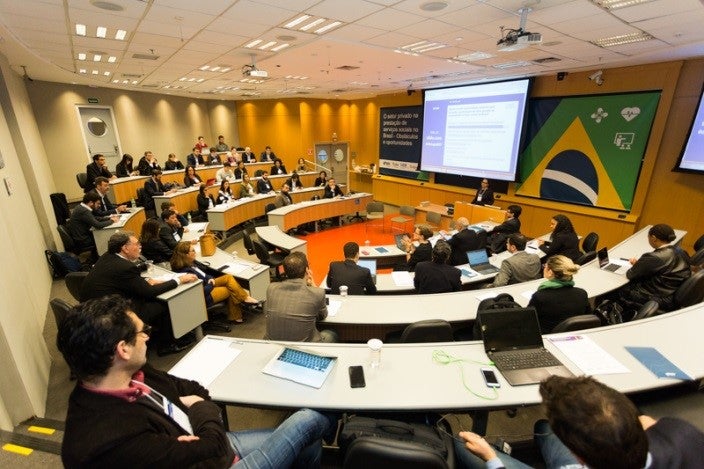There’s been a lot of talk about public-private partnerships (PPPs) and it’s no wonder. Given today’s development needs and the limited fiscal space facing many governments, private sector financing and know-how has become even more critical.

Brazil is one of the most mature markets for PPPs in Latin America and the Caribbean, but even so, there are still considerable challenges, particularly in the social sectors. With this in mind the Inter-American Development Bank (IDB) and the Institute for Education and Research (INSPER) recently hosted an event in Sao Paulo, where key actors from public and private sector organizations, civil society and academia gathered to discuss the challenges and opportunities for private sector involvement in the delivery of social services in the country. Here are the highlights.
What has Brazil done so far?
The use of public-private partnerships in social sectors in Brazil has grown significantly over the last two decades, particularly since 2004 when legislation was approved to allow public financial support for PPPs. The IDB has been involved in a number of Brazil’s successful experiences to engage the private sector in expanding and improving social services:
- The Hospital Subúrbio in Salvador, Bahia, Brazil’s first PPP in the health sector, and one of the busiest hospitals serving the metropolitan region of Salvador, has significantly improved its emergency services and serves as a model for other health-care related PPPs throughout the country;
- Hospital management in the State of Ceará, has benefited from the participation of specialized private sector organizations, known as “organizações sociais”. As a result, the Cariri Hospital received the highest quality accreditation, a feat achieved by only a few hospitals in Brazil.
- The State of Pará was one of the first to launch a platform to integrate and disseminate test results in Portuguese and Mathematics across the state and municipal school system, thanks to an IDB-financed loan in partnership with Tuneduc -a São Paulo-based software company specializing in education- and with support from Instituto Unibanco, the Lemann Foundation, and Itaú BBA.
Furthermore, Ceará and the City and State of São Paulo are using Social Impact Bonds (SIBs) in which investors (including multinational firms, private foundations and individuals) will offer financing for the provision of healthcare, labor training, and education services, based on development results as opposed to inputs.
What else needs to be done?
Despite these successes, public skepticism about PPPs, onerous legal and regulatory frameworks, particularly regarding public procurement of the private sector, misinformation and distrust among would-be public and private partners and the lack of qualified service providers were frequently cited as key obstacles for greater private sector involvement in social sector delivery.

Fortunately, event participants also came up with several concrete ideas to address them:
- Inspire others by sharing best practices and methodologies, giving due consideration to local context;
- Improve public sector capacity to contract and supervise performance of private vendors, through training, toolkits, and on-line courses.
- Provide technical assistance to review legal and regulatory frameworks for PPPs (in general and according to each specific sector) and conduct value for money analyses and program evaluation;
- Strengthen existing and develop new public procurement procedures and instruments to facilitate contracting based on results; and
- Advocate for greater private engagement in social service delivery and continue to dialogue among diverse stakeholders, including agencies responsible for oversight and control, to counteract misperceptions.
My big takeaway from São Paulo is that effectively tackling the many social challenges Brazil faces today is doable thanks to the creativity, resourcefulness and innovation of its people and their willingness to work together to deliver needed services to the country’s most vulnerable. We need both public and private sectors as well as civil society to meet today’s social investment needs not only in Brazil, but in the rest of the Region. And events such as the one in São Paulo can help us to learn from each other. The IDB Group can and should continue to support its borrowing member countries in building the public-private partnership ecosystem, through the actions listed above as well as specific analytic work, for example about the potential fiscal impacts stemming from PPP schemes (see related IDB study).
Regardless of what type of partnership model is used, it all boils down to a shared goal of improved social outcomes and a better use of taxpayer money. So, let’s dispel the myths and keep the conversation going.
Post by Tracy Betts, the Principal Operations Advisor to the Social Sector Manager at the Inter-American Development Bank.


Leave a Reply